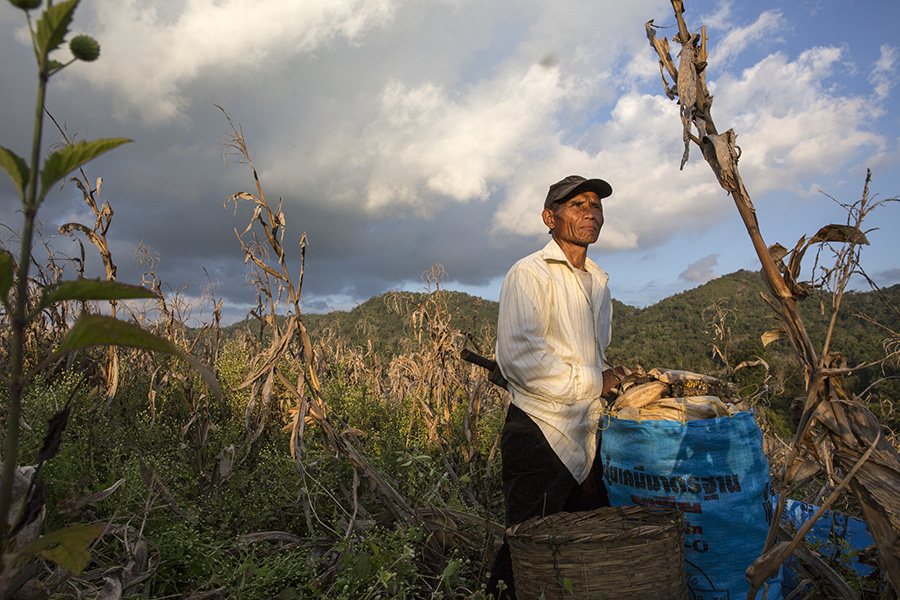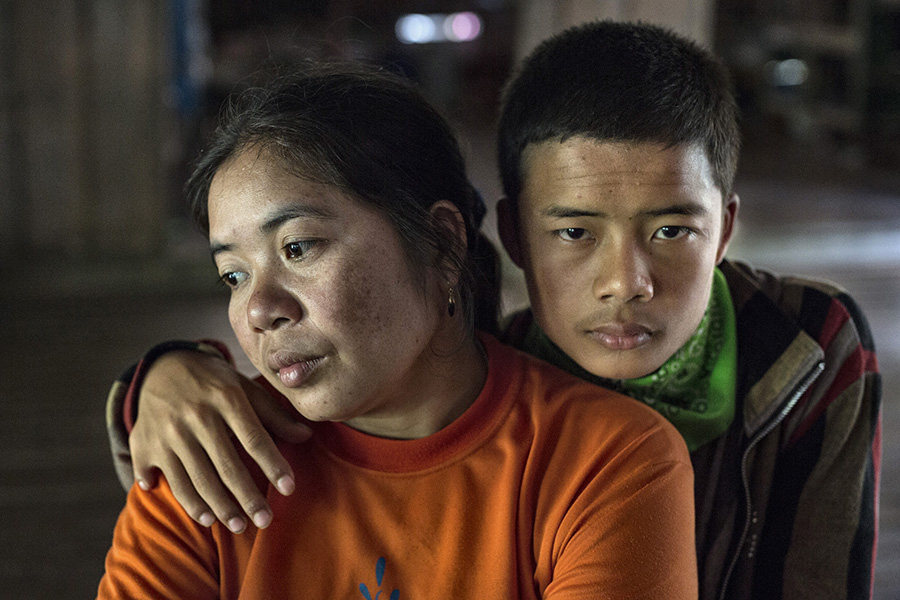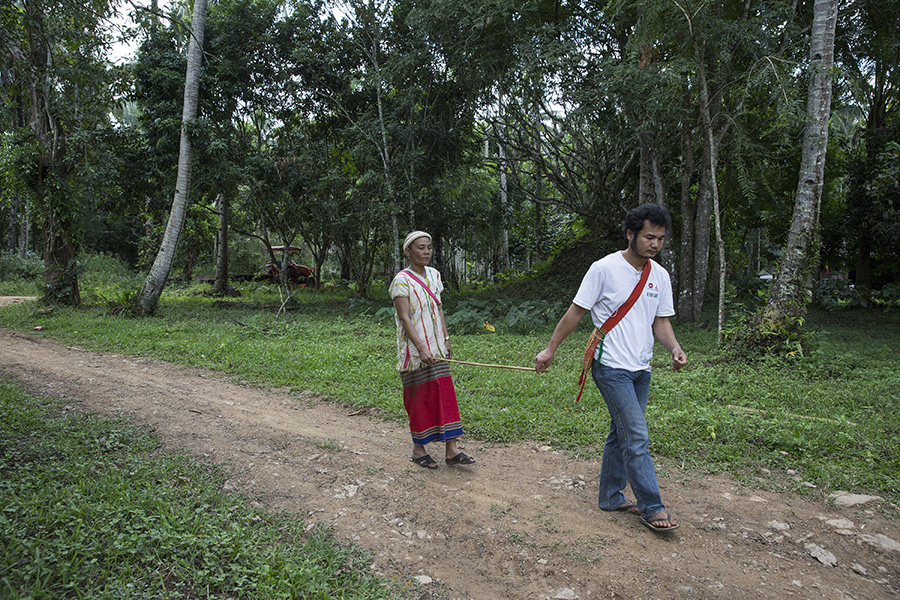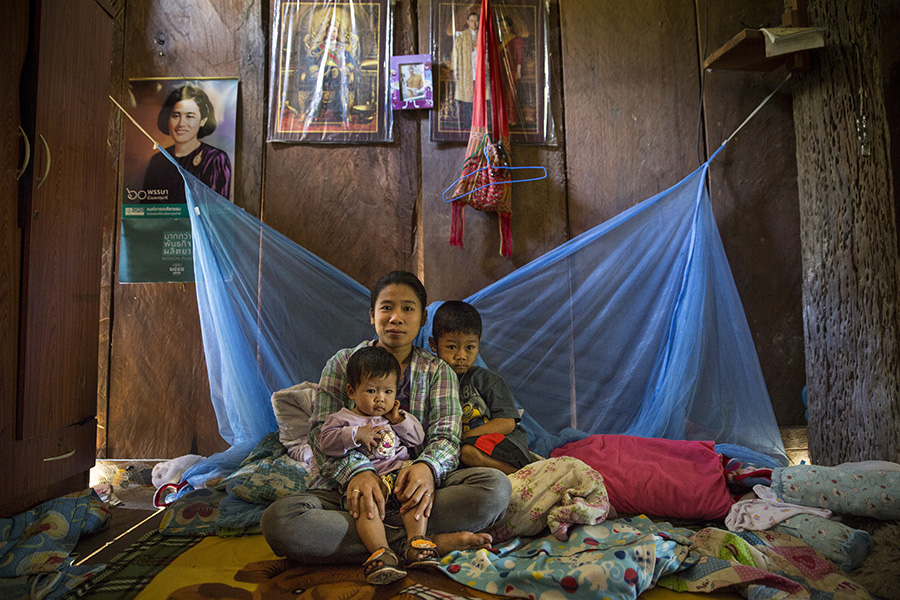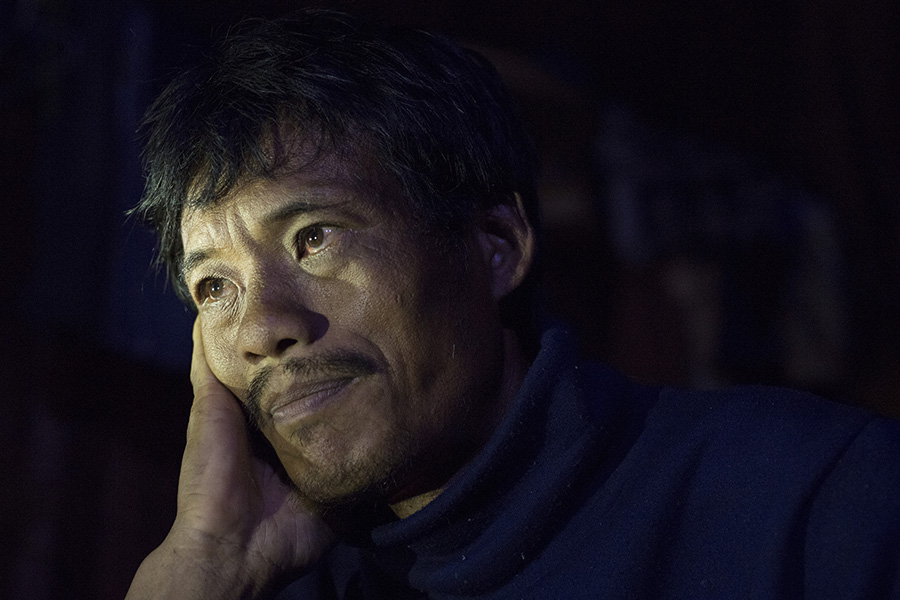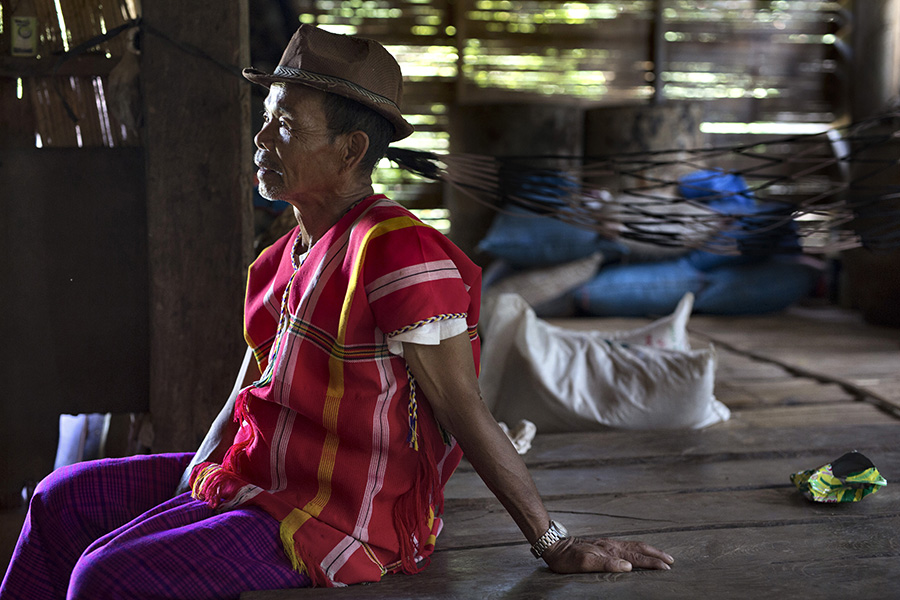The Individuals
Somchai
Somchai, a farmer in his 60’s, was one of the 22 plaintiffs that won the court case against the government. He is married and has seven children. His sixth child, an adolescent boy, has an intellectual disability and attends a school for children with special learning needs in a nearby city.
The supreme administrative court has given its verdict but what can we do if they won’t follow the order? Before the court verdict and after the court verdict, the Pollution Control Department came to check the level of lead in soil sediment. Still they come every month but in all this time, they only conduct research. They should stop researching and start cleaning up.
Chanthira
Chanthira, a mother of three children, suffers from frequent abdominal and muscular pains. She is particularly worried about the health of her 15-year-old son.
The government doctor told me that my son’s lead level wasn’t above the unsafe level but I didn’t understand what he meant and I’m still worried about him. My son has an extra finger on each hand and an extra toe on each foot. From about 5-months-old until he was 2-years-old, he had diarrhea all the time. He’s a slow learner, slower than his friends in the same age group. My boy doesn’t eat very much, he has a poor appetite. He can’t run fast, he can’t play sports. He is always weak and low on energy.
Ma Ong Seang
Ma Ong Seang, in her early 50s, lost her sight in the late 1990s. In 2002 she was diagnosed by a medical doctor in Bangkok as suffering illness because of elevated amounts of lead in her body. She is cared for by her mother and her two teenage sons.
I eat fish when we don’t have money and have little else to eat- maybe a few times each month. It doesn’t matter whether I feel afraid [of lead poisoning], it’s a question of having something to eat or not. When the tap water fails because of the condition of the pipe joints, water from the creek is our only source of water. Last month there was no tap water at all so everyone had to use creek water for drinking and cooking.
Minh
Minh, in her late 20’s, came to Lower Klity Creek when she married a villager. They have a 7-year-old boy and a 9-month-old baby girl. Like other households in her part of the village, her house is not connected to the village’s system of piped water.
I worry about the possible harm to my children from the creek water. I am particularly worried about my son because he’s too small for his age and falls ill often. He’s skinny and pale. He learns very slowly: sometimes he doesn’t understand what I say or the teacher says. I worry that these problems are caused by lead and I would like the government departments in charge to come and clean up the creek.
When my son was much younger he had a blood test. I asked about the results when they came back about a year later but they said the results weren’t ready. Other villagers didn’t get results either. After the first test of my son’s blood, I didn’t allow them to take any more blood from him because I never saw the results from the first test.
Kamthorn
Kamthorn, who farms rice and corn, suffers from headaches and joint pains in his shoulders and back. He is also one of 22 plaintiffs who won the court case against the Pollution Control Department in 2013. He hasn’t received a blood test for lead since 2008; he says he never got the result.
In 2005, the minister of environment came here, along with many other government officials, and asked us to withdraw our lawsuit. The minister said, “Let nature rehabilitate itself!” I asked him how long natural rehabilitation would take. The minister turned to the director general of the Pollution Control Department for an answer, but the director general couldn’t answer. The villagers were happy when the supreme administrative court handed down its decision, but the government fights us with time, delaying any action time and again. When will the government do its job?
Yasoer
Yasoer, a farmer in his mid-60s, moved to Lower Klity Creek village when he was about 20-years-old after marrying a local villager. He’s suffered from frequent headaches, feeling faint, and having pain in his legs, back and arms for over 30 years.
The doctor told me to avoid water from the creek but of course we can’t do this. I stay up to three weeks a month out in my fields when we are planting or harvesting. I have a small hut out there and I use creek water, all the time, for cooking, drinking, and washing. I also catch and eat fish. At other times of the year I take day trips out to my fields and, when the water I bring with me runs out, I drink from the creek.
I joined the court case against the government because the Pollution Control Department wants nature to “rehabilitate itself.” But if we wait for nature to rehabilitate itself, it might take 100 years or more and even then still not be clean.
